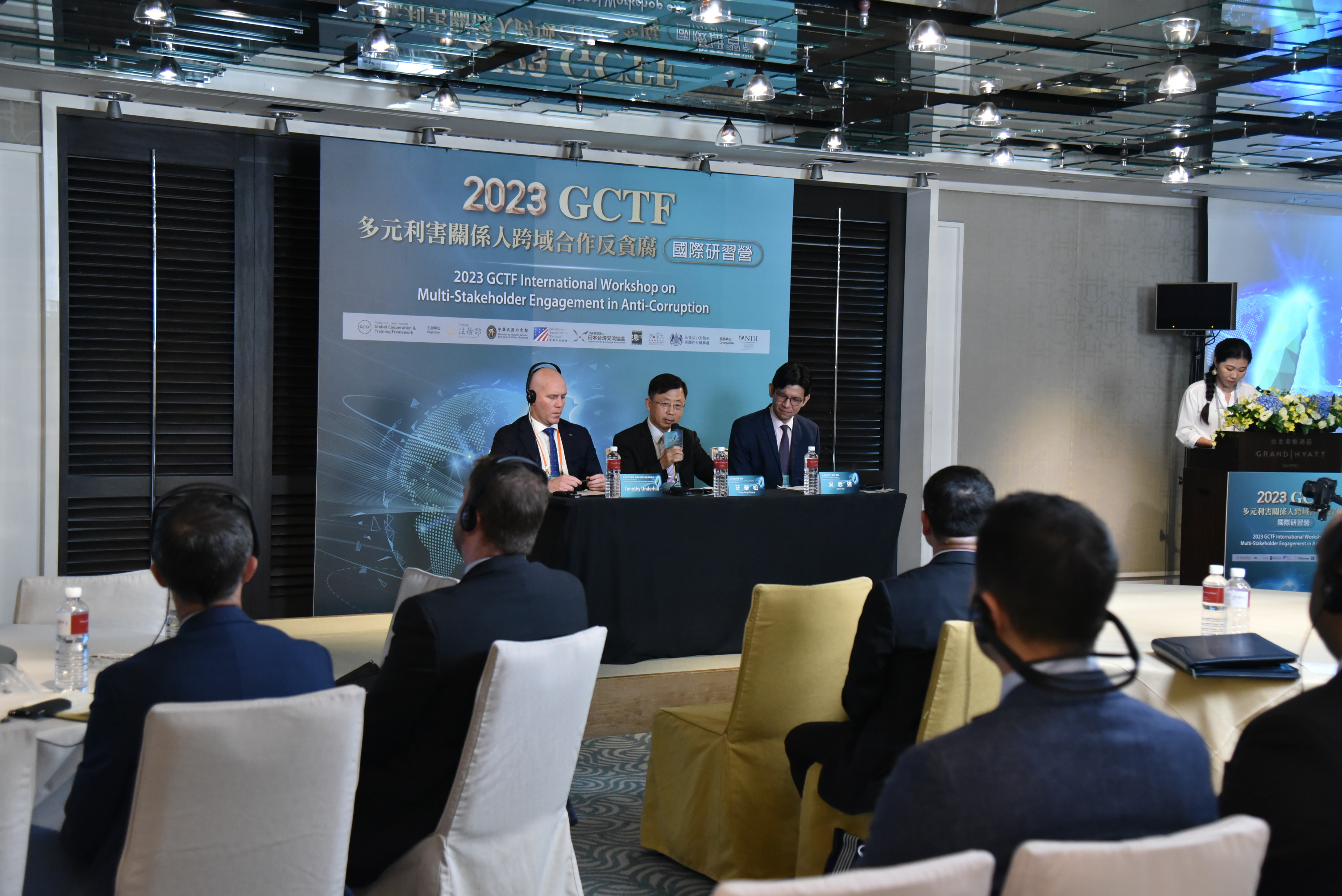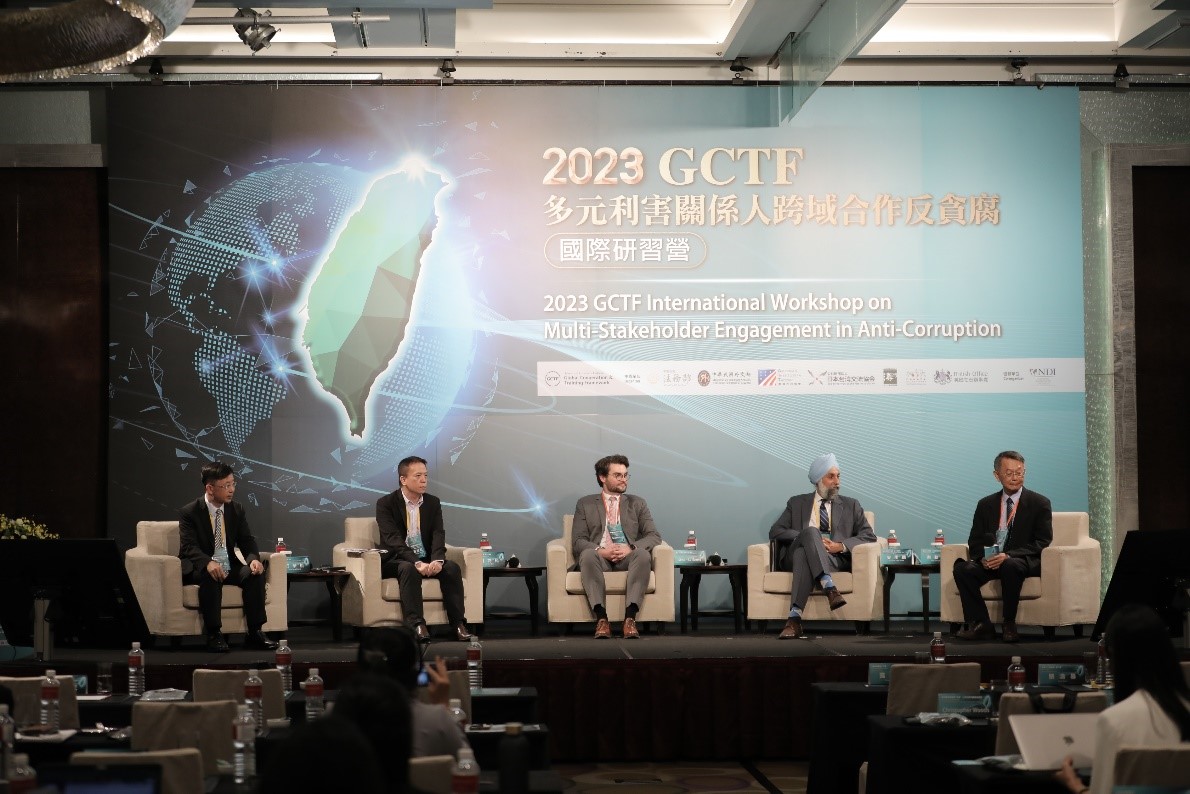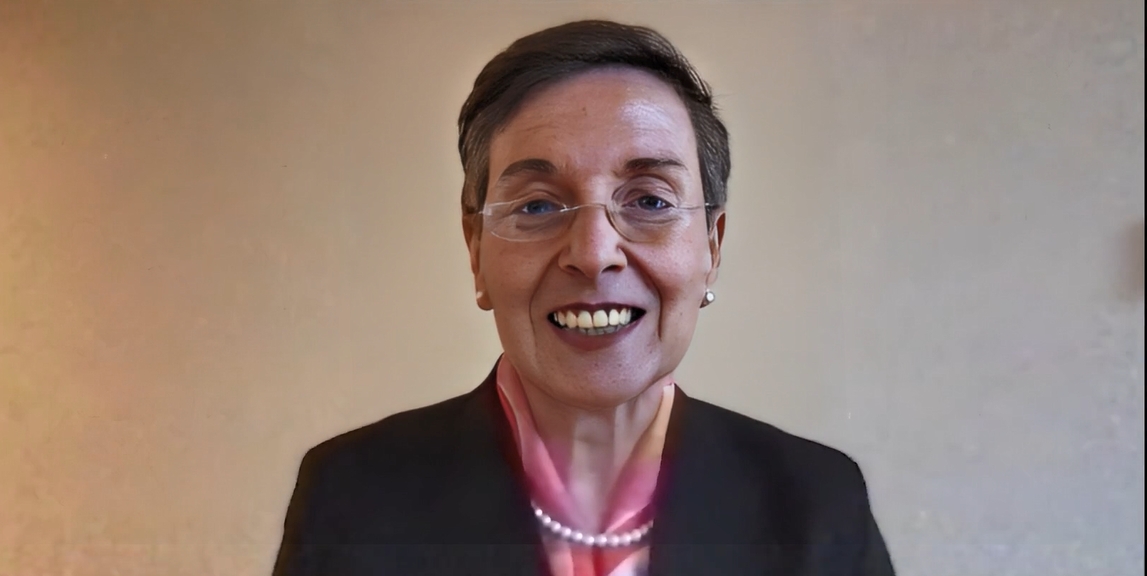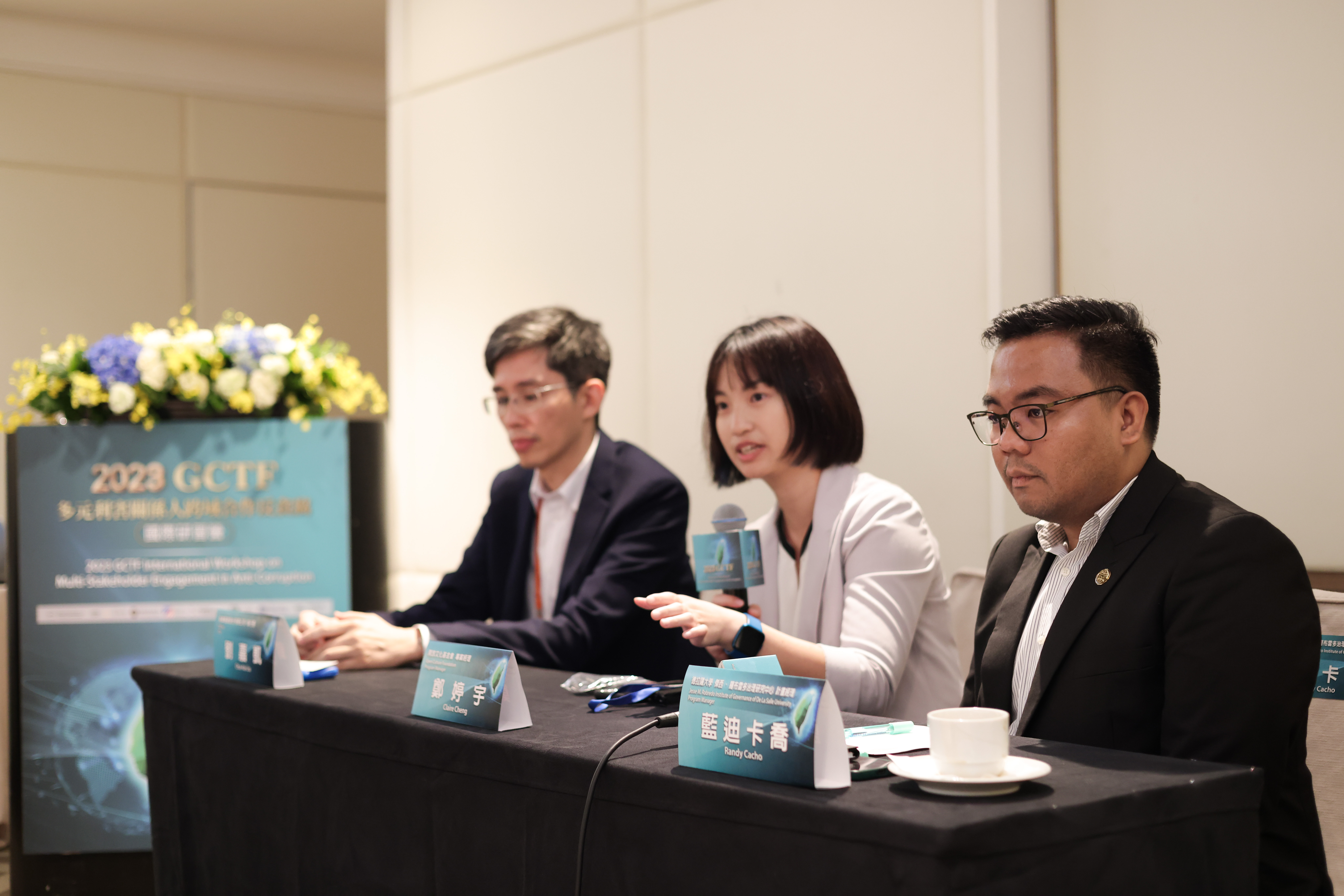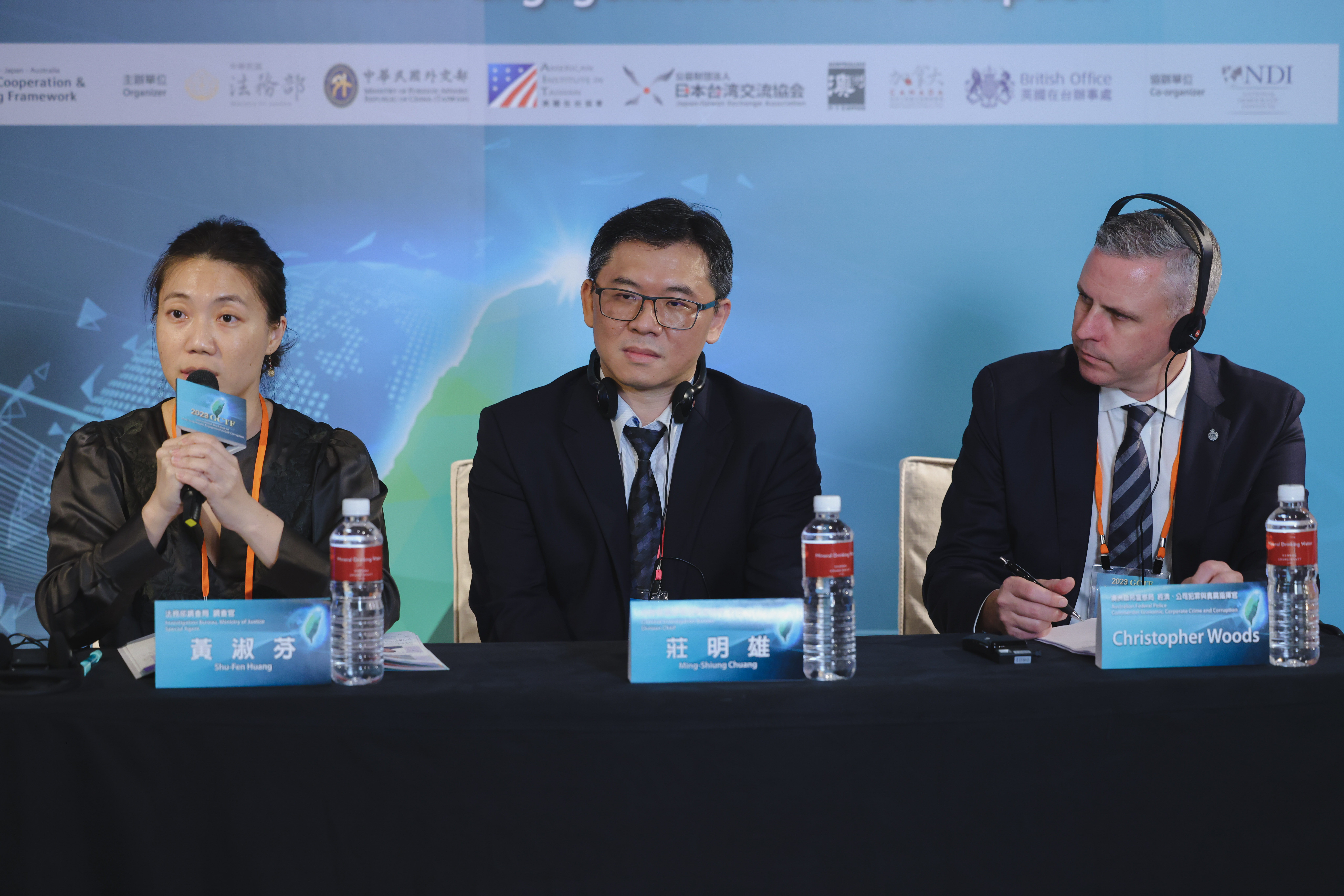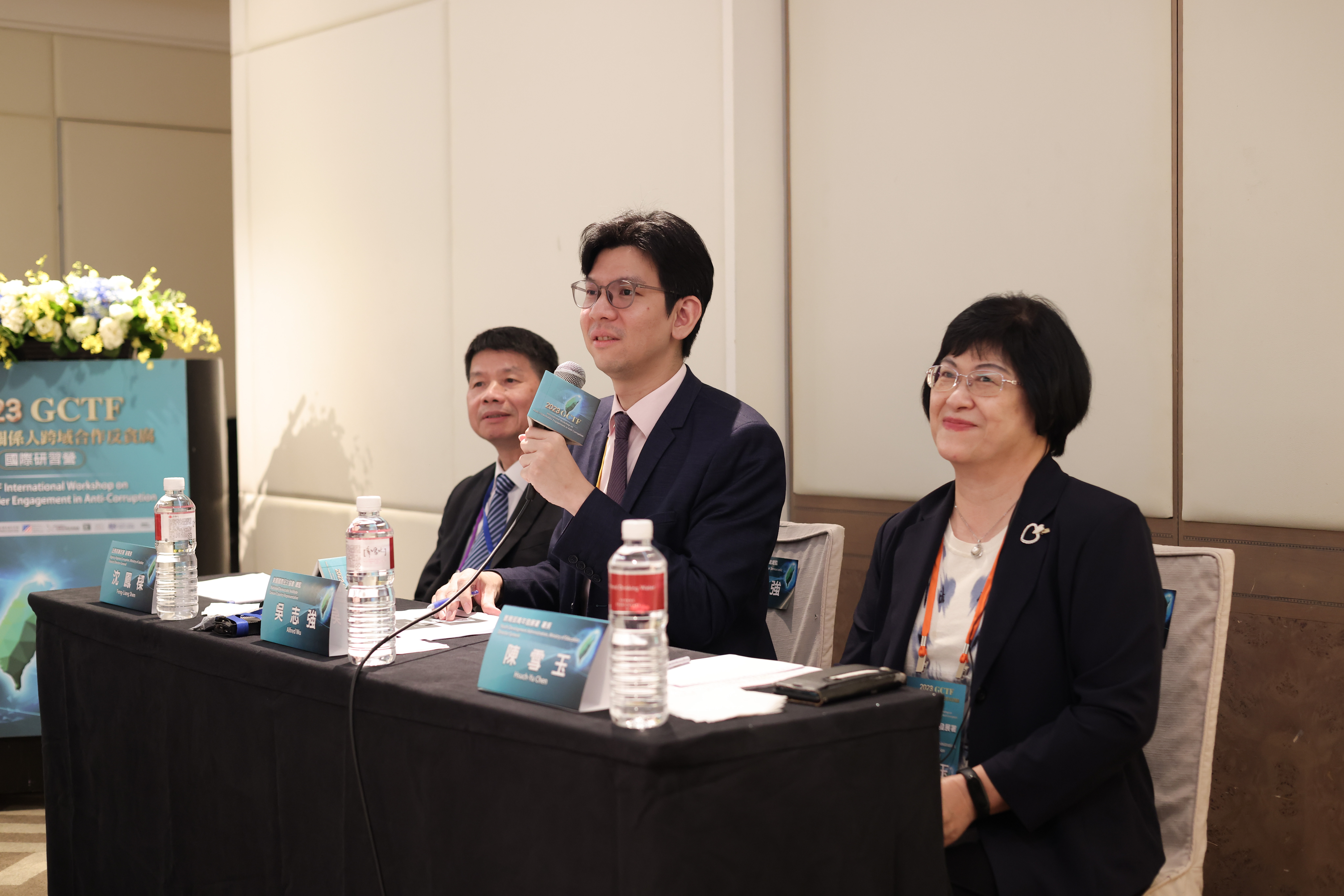“2023 GCTF International Workshop on Multi-Stakeholder Engagement in Anti-Corruption”: Taiwan’s First Physical Training Workshop Successfully Concluded. Integrating Diverse Perspectives and Technological Capabilities to Open Up New Horizons in Anti-Corruption Enforcement Cooperation
- Publication Date:
- Last updated:2023-06-30
- View count:4733
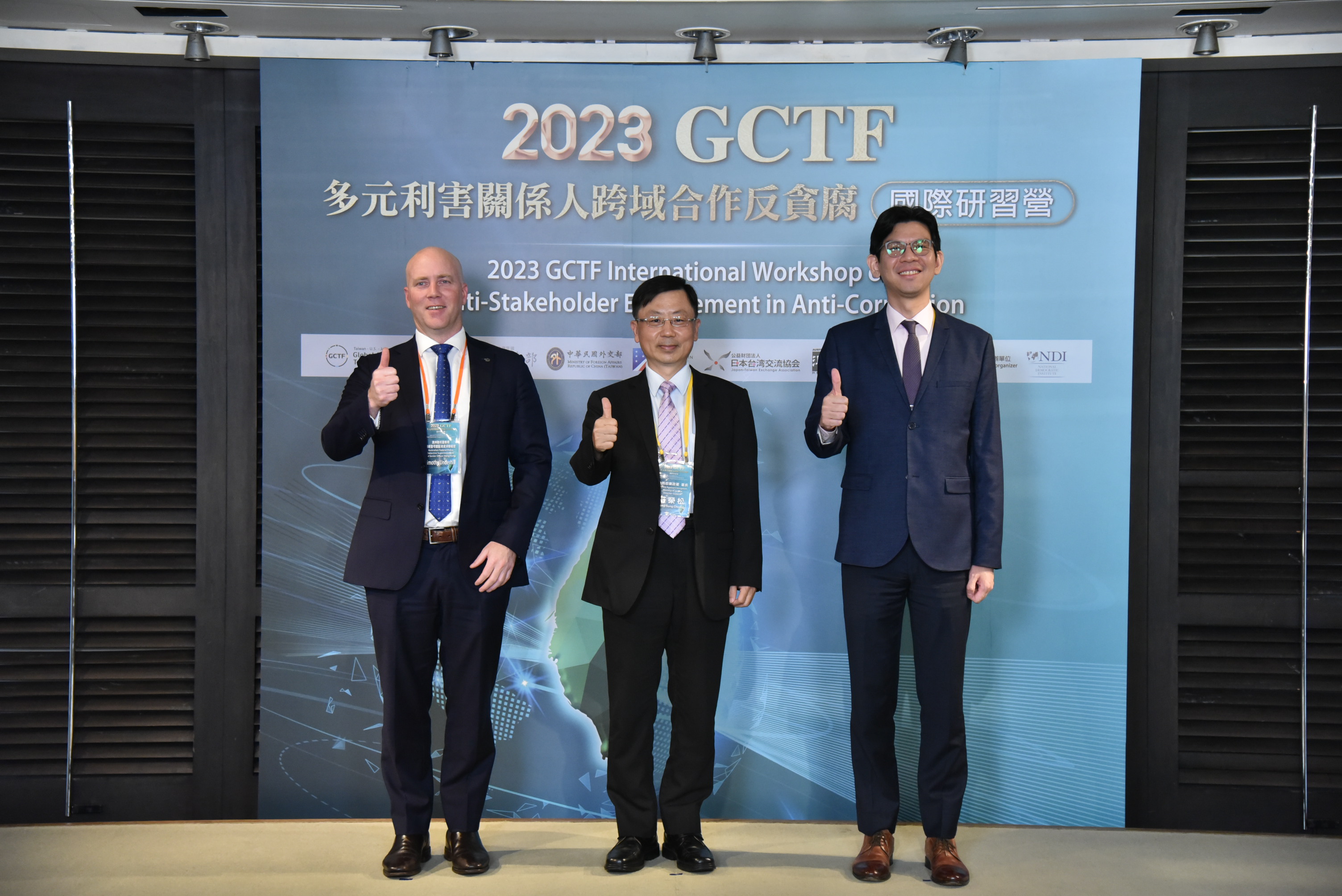
“The 2023 GCTF International Workshop on Multi-Stakeholder Engagement in Anti-Corruption” concluded successfully on June 14th, with the participation of over 200 government officials, experts, academics and members of non- governmental organizations (NGOs) from 15 countries. These countries include Taiwan, the United States, Japan, Australia, Canada, the United Kingdom, South Korea, Malaysia, Thailand, Palau, Indonesia, the Philippines, Sri Lanka, Papua New Guinea and Belize. The workshop aimed to discuss practical measures to enhance the effectiveness of the anti-corruption alliance from a multi-disciplinary perspective. This endeavor injects fresh momentum into the reconstruction of the global order in the post-pandemic era.
The two-day workshop focused on the theme of “Collaborating with Diverse Groups including Public and Private Sectors, NGOs, Academia, and Civil Society within the Anti-Corruption System.” By listening to and incorporating diverse perspectives, the workshop invited 26 presenters from Australia, the United States, Japan, the United Kingdom, Canada and other countries with expertise in different fields and disciplines to share their views on anti-corruption work from various perspectives.
On anti-corruption collaboration, a special address was delivered by Delia Ferreira Rubio, the Chairperson of Transparency International. In her address, she stressed the dynamic and evolving nature of corruption patterns and called for a focus on government transparency, the importance of integrity and effective accountability to address current challenges. Additionally, she expressed expectations for a more progressive approach to the 21st century judicial cooperation procedures. Director-General Rong-Sung Chuang of the Agency Against Corruption (AAC) shared how Taiwan has implemented the requirements of the United Nations Convention against Corruption through concerted national action. He also highlighted Taiwan's efforts in promoting innovative and good governance models through public-private cooperation and cross-disciplinary collaboration.
On enforcement cooperation, countries extensively discussed on key issues such as “International Anti-Corruption Law Enforcement and Mutual Legal Assistance,” “Fighting Corruption through Targeting Money Laundering and Confiscation of Bribes and Proceeds of Corruption” and “Use of Technologies by Law Enforcement Agencies in Fighting Corruption.” During these discussions, conducting technological investigations. Such investigations are no longer confined to the domain of a single law enforcement agency and requires cross-disciplinary collaboration. The pragmatic promotion of transnational informal or formal cooperation is expected to be a trend in investigating major corruption cases in the future.
Furthermore, participants engaged in lively exchanges on topics such as “Reducing Corruption Factors through Open Government” and “Mobilizing Youth for Uprooting Corruption.” Upon the foundation of open government and open data, people are endowed with knowledge and empowerment. Simultaneously, the infusion of the creativity and vitality of youth enhances the importance of integrity values and government transparency in civil society. Director-General Hsuch-Yu Chen of the Youth Development Administration and Deputy Director-General Feng-Liang Shen of the AAC also shared insights on how Taiwan continues to enhance the engagement and participation of youth and women in the field of anti-corruption through policies and collaborations with NGOs.
In closing remarks, Director-General Chuang of the AAC expressed his heartfelt gratitude to the participants from around the world for their enthusiastic engagement and discussions during the workshop. He emphasized that the power of collaboration among diverse organizations stems from different perspectives, expertise and resources, all built upon a foundation of trust and mutual benefit. He also pointed out that this workshop represents a significant step forward in strengthening the relationship of trust between Taiwan and other countries through practical actions. It is the first of this kind in successfully rallying like-minded groups and individuals to join in the fight against corruption. He further expressed optimism for fruitful outcomes in the near future as a result of these collective endeavors.
After two plenary sessions and four workshops where participants eagerly engaged in lively and in-depth exchanges, the workshop drew to a successful conclusion amidst a sense of reluctance to part ways during the closing ceremony. Indeed, integrity and transparency are not only universal values but also goals that democratic societies continuously strive for. It is hoped that the benefits of this international workshop can continue to resonate through the GCTF dialogue platform, connecting global law enforcement cooperation and the anti-corruption community. Furthermore, it is expected to convene countries worldwide in solidarity towards a new beginning of collaborative efforts in combating corruption.


